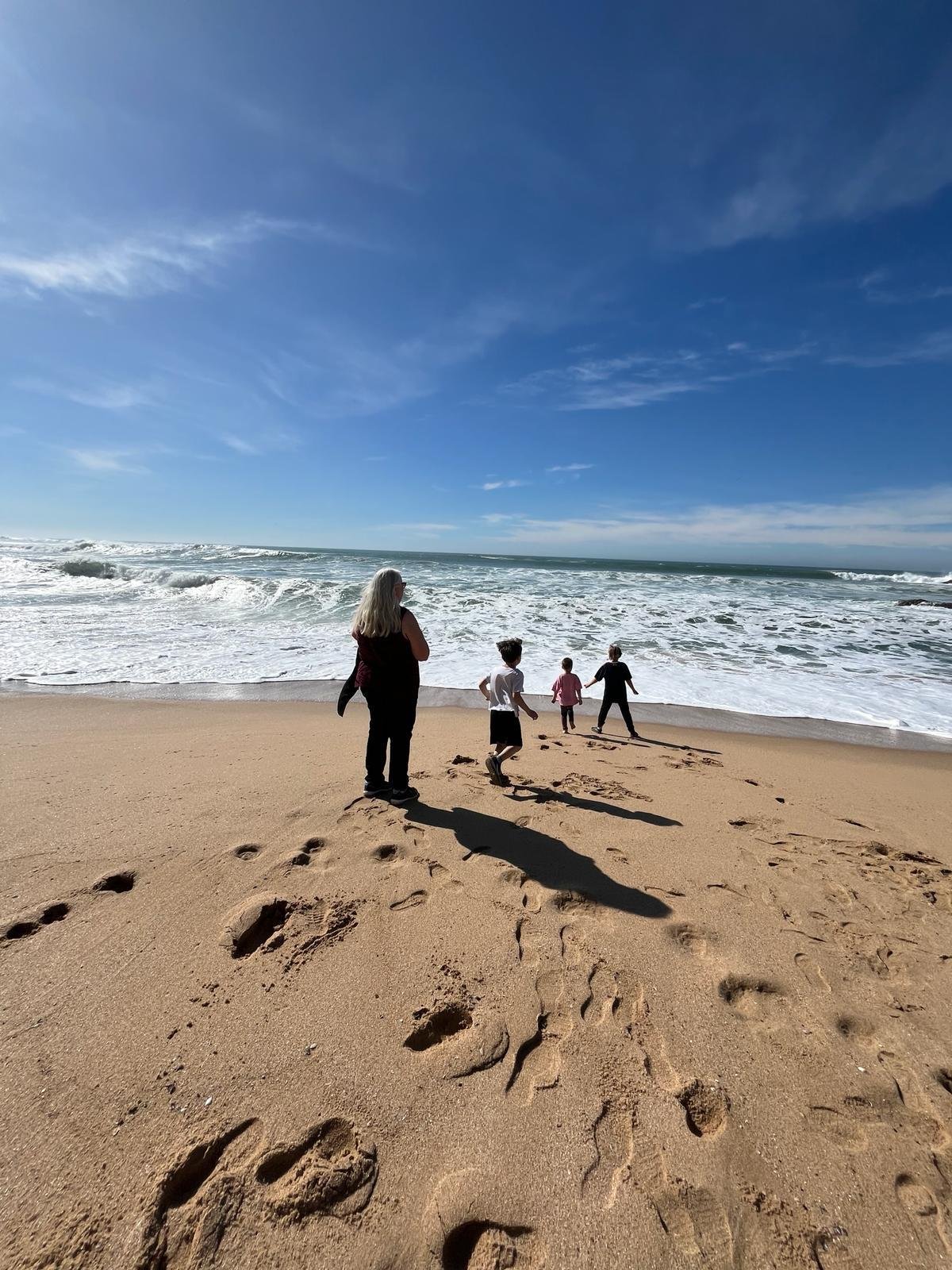
We are two mothers
in tech
…. and we live our lives through rectangular screens
The exact opposite of what we want for our children.

This is for my kids, your kids, our kids.
We want our children to have a childhood. We want them to learn how to argue with friends. To get bored. To play outside. Rain or shine. To get dirty and dead tired. To band on imaginary missions and save worlds they create. We want them to get in trouble and make mistakes. To learn that you can make things right. Forgiven. Forgotten. To live small lives, so their identities grow on strong foundations. To grow up free of judgement so they can know who they truly are.
I recently moved my family to a very small beachtown in Portugal and am witnessing a whole new experience of what it means to live a simple childhood.
We see social media, AI, and technology’s invisible hands as standing in the way of that.
What happens to our kids' nervous systems when they are made to feel deficient?
What happens when they are overwhelmed with everything, everywhere, all at once, at their fingertips?
What if they learn how to absorb someone else’s emotions in a phone before they know their own? Or even themselves?
What if we miss the window of opportunity to use technology as a force of comparison and isolation rather than a source of creation and expression?
This can’t be good.
Here is what else we know:
-
Last year, U.S. Surgeon General issued a public advisory warning of the risks of social media use to young people.
-
Stanford researchers, previously unconvinced and skeptical, published a meta-analysis that conceded conclusive associations (small yet significant) between social media use and increased depression and anxiety.
-
A C.D.C. study, reported 42% of high schoolers experiencing persistent feelings of hopelessness, 22% seriously considering suicide and 18% making a suicide plan.
-
Teens use social media “almost constantly”.
-
It is overwhelming to be thirteen today.
-
Young people are becoming recluses.

The problem is nuanced and complex, so we are setting out to understand
it more deeply.
Despite all of the terrifying evidence, we are two mothers in tech who are not against tech.
We want our kids to text with a few friends. To enjoy the occasional diversion on Youtube. To play a game or two. To use technology to create and learn. Today, our fear of them getting sucked into a rabbit hole of endless consumption, perverted content, or judgemental chatter stops us in our tracks.
We are done waiting for policymakers to regulate big tech.
We do not believe big tech will prioritize our kids' well-being.
We are also well aware that educators don’t have the capacity to lead the way.
We are past the idea that someone else will take action on our kids behalf.
This is a problem we created. And it must be a problem we fix.
This is not on our kids.
Our kids don’t need fixing.
Their role models do.
We do.
Our relationship with technology needs fixing.
6 billion smartphone users.
6 billion people with an addiction.
…and many, many, many dysregulated nervous systems.
And no one’s willing to fully acknowledge that.
This moment calls for each of us, as parents, to do our part.
We are two mothers ready to do our part.
Through collective investigation and sensemaking, we are building a research-backed roadmap for addressing our relationship to technology.

In 2024 we are setting out to…
Learning from experts
Speak with experts in mental health, social and cognitive development, family systems, neuroscience, addiction, social media and AI, trust and safety, as well as practitioners dealing with the issues surrounding social media and kids, such as clinicians, educators, policymakers, economists, and ethicists. Educating ourselves and sharing what we learn along the way.
Launch a pilot program
Launch a pilot program that will be a growth environment for committed parents in tech* to sit together at the table with findings from research, ready to envision and co-create better futures. Envisioning solutions to different parts of this multifaceted problem together.
* Honestly though, anyone who cares deeply enough and wants to help us solve this is welcome!
Identify opportunities to partner with research centers and think tanks to influence their studies with new inputs that lead to legislative and systemic change. Bringing a qualitative, human-centered layer to the world of academic research helping shape how big tech gets regulated.
Identify partnership opportunities

This is us.
Franziska Gonder,
mother of three
Maria Potoroczyn,
mother of two
Together, we are a commitment to:
bringing more belonging, safety, and dignity to the future of technology,
and re-imagine what it looks like to parent in the 21st century
inform responsible tech leadership
re-imagine ethical, safe product design
and lead a more regulated, connected life with our children - on and off the screens.
© FRANZISKA GONDER 2022








